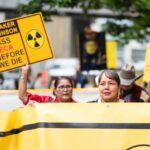Seizing the US-Iran moment with white tights and reality TV
By Lovely Umayam | November 7, 2013
Amid frantic preparations for an imminent US government shutdown, time temporarily stopped earlier this fall when President Barack Obama uttered the words “Just now, I spoke on the phone with President Rouhani of Iran.” This came at the beginning of a four-minute briefing in which the US president announced new diplomatic efforts to reach agreement on the Islamic Republic’s nuclear program.
As with most high-profile diplomatic developments, Obama’s summary was frustratingly vague, but it didn’t take away from the milestone—the phone call marked the first time an Iranian president and a US president had spoken to each other since 1979. To put that in context, a computer was then heavier than a grown dog and Atari’s Space Invaders was igniting an international video game craze. US relations with Iran were so thorny that by the time they were done snubbing one another, the world had figured out how to shrink computers and traded pixelated aliens for Angry Birds in high-retina display. And of course, phone calls are somewhat old-school now, so what better way to punctuate re-established relations than with a tweet? No one ever thought an Iranian president would retweet the US State Department, but indeed he did.
Since then, the Iranians have attended a flurry of negotiations, including talks with the P5+1 (the United States, Russia, France, Britain, and China, plus Germany) in Geneva and consultations with the International Atomic Energy Agency (IAEA), the watchdog that reports on Iran’s nuclear activities. Apparently, Iranian negotiators recently dazzled their counterparts with a PowerPoint presentation outlining possible entry points for talks. Now everyone is waiting with bated breath for the actual outcome.
Well, maybe “everyone” is an overstatement.
Unfortunately, the recent US fiscal catastrophe and federal shutdown overshadowed any public excitement about the potential for normalizing relations between the two countries. Now that the shutdown is over and the United States is regaining its stride, there is still an opportunity for the nuclear nonproliferation community to recapture the American public’s short attention span.
This is not to say that no one is paying attention to the renewal of negotiations. The Obama-Rouhani phone conversation was featured on the front pages of major news outlets and there is a healthy amount of wonky chatter about the possible outcome of future talks. But there also remains an untapped opportunity to promote broader awareness on nuclear nonproliferation issues and make this diplomatic development worthy news for the broader American public.
So what should nuclear non-proliferation activists do to seize the moment?
In an ongoing creative grassroots campaign, the Ploughshares Fund’s Give Peace a Dance received more than 4,000 signatures and a wealth of silly dance videos in just two weeks. The campaign features two comedians, one Iranian-American and one Jewish-American, who bop their political tensions away for peace, which also conveniently provides reason to bust out awful white tights for a corny dance number. The success of this small but eye-catching campaign suggests a growing interest in understanding US-Iran-Israel relations and Iran’s technical nuclear trajectory.
The nonproliferation community should continue to tap similar creative channels. Activists might consider posting nuke-related videos to Upworthy, a site devoted to making socially conscious stories go every bit as viral as pet mishaps. Or they could create an item on nuclear negotiations following the model of one recently published by those masters of clickability at Buzzfeed, which explained US thinking on Syria with a series of clips from the reality television show The Hills. Tactics like these could get a much wider swath of the public to show support for US-Iranian engagement, and if that happens, it would be very difficult for the US government to put this issue on the back burner.
But identifying media platforms for supporting negotiations is just half the battle when it comes to overcoming public apathy. Every successful campaign includes a specific “ask,” or suggested action. In this case, the “ask” can be simple: keep yourself informed. Follow the story even when cable news pivots its cameras to the next scintillating story—perhaps another fiscal meltdown or Miley Cyrus.
As it stands, support for negotiations is tenuous in Washington. Several members of Congress have already expressed their intention to intensify the barrage of US sanctions against Iran. News outlets are reporting a possible Congressional scuffle on Iranian sanctions relief. Sen. Marco Rubio, Republican of Florida, has called for a new round of sanctions on Tehran under a proposed resolution, and said that “now is not the time to suspend sanctions, but to increase them on the Iranian regime.” And of course, other pro-sanctions lobbyists will come out of the woodwork. If lobbyists and Republican hawks hope to influence US engagement with Iran, the American public should also get a say with their elected representatives, who can sway the outcome of any deal. It's critical for concerned citizens to raise their voices because Congress is not exactly teeming with nuclear nonproliferation experts: The second clause on page three of Rubio’s resolution says that the government of Iran does not have an absolute or inherent right to enrichment and reprocessing technologies under the Nuclear Non-Proliferation Treaty (NPT). This is a problematic statement since Article IV of the NPT states that “Nothing in this Treaty shall be interpreted as affecting the inalienable right of all the Parties to the Treaty to develop research, production and use of nuclear energy for peaceful purposes without discrimination.” So Rouhani’s assertion that Iran has the right to enrichment is not overreaching, it’s just what the treaty says.
Nuclear nonproliferation experts talk about the need for enhanced public awareness and understanding of nuclear issues. The Obama-Rouhani political breakthrough presents the perfect opportunity to achieve that goal. It took 34 years for two countries to reconnect to attempt rapprochement. Let’s make sure that it doesn’t take that long for the American public to care.
Together, we make the world safer.
The Bulletin elevates expert voices above the noise. But as an independent nonprofit organization, our operations depend on the support of readers like you. Help us continue to deliver quality journalism that holds leaders accountable. Your support of our work at any level is important. In return, we promise our coverage will be understandable, influential, vigilant, solution-oriented, and fair-minded. Together we can make a difference.
Topics: Columnists, Nuclear Energy















